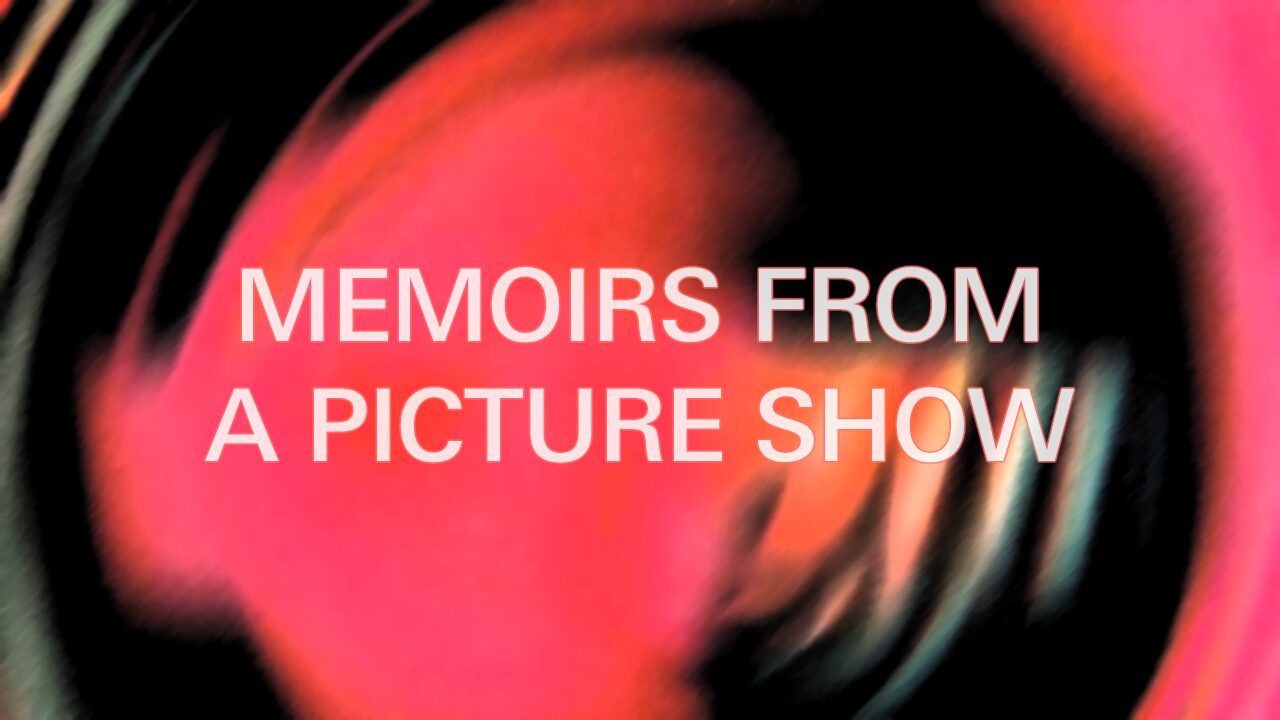
Memoirs From a Picture Show is a semi-regular column from the Merry-Go-Round staff chronicling memories, miracles, and anomalies from our time spent in cinemas around the globe. You’ve read about movies; now it’s time to read about seeing those movies in theaters.
It was the fourth day of the 2025 AFI Fest, the American Film Institute’s annual takeover of Hollywood’s TCL Chinese Theatre. My ClapperCast co-host, Carson Timar, and I already had screenings of DEAD MAN’S WIRE and PETER HUJAR’S DAY in the rearview and were preparing for what was sure to be one of the oddest double features ever attempted: THE VOICE OF HIND RAJAB and BAD APPLES, with a 30-minute break in between.
Up first, THE VOICE OF HIND RAJAB, a devastating docudrama about Red Crescent volunteers receiving a series of calls from a five-year-old Palestinian girl lying inside a car destroyed by the IDF alongside her dead family. The film uses the real audio from the murder, including the moment where her young voice accepts that she’s dying. It’s a window into the daily reality of children being senselessly murdered during this genocide. Quite a harsh transition into BAD APPLES, a British black comedy about an exasperated primary school teacher (Saorise Ronan) who gets into an altercation with her most temperamental, violent student that results in her kidnapping and trapping him in a basement for weeks on end. It’s a flippant, if hilarious, look at how the exhaustion with today’s generation of young men is pushing educators and parents to the brink of retaliation.
You could not fault any normal human being for needing a reprieve after THE VOICE OF HIND RAJAB. A long cry. A walk in the park. Hugging their child. Really anything that allows them to process the trauma they’ve endured and the privilege they hold by living in better circumstances.
This was not tenable for Carson and I.
The moment the credits rolled, we jumped out of our seats, distastefully skipping what was surely an enlightening and vital Q&A so that we could get our seats for BAD APPLES. The moment we were able to stand still, we scribbled down some early thoughts on THE VOICE OF HIND RAJAB, processing our sadness through text. As we wrote, our brains were already transitioning into the more calloused mindset needed to enjoy a comedy about child abduction under any circumstances, let alone ours. To the average person, it would surely feel impossible and even cruel to do this, but that was the reality dictated by the screening schedule.
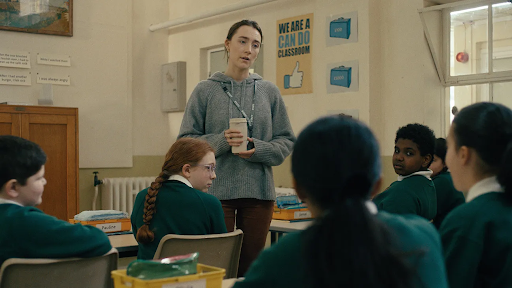
Film festivals are exhilarating and exhausting, but in some ways, the experience is as convenient as possible. The vast majority of the screenings at AFI Fest are in a six-house multiplex above the iconic Grauman’s movie palace. This means no transit between screenings, just a short walk down the hall. If you’re press, you can jump into the passholder line 15 minutes before any screening and find a great seat—ideal for cramming. The longest journey one might make is down the stairs for a red carpet premiere. These tickets are tricky to get ahead of time, as major industry players and AFI’s most respected press members from across town pack the 932-seat theater with ease. However, if you’re savvy, you can hunker down in the rush line for a couple of hours and score a seat from a no-show. I experienced this personally, and got to experience Noah Baumbach’s love letter to movie stars, JAY KELLY, in the most adoring environment possible. People hem and haw about Hollywood celebrating itself, but when you’re invited to the party, it’s impossible not to understand why.
The downside is that, and I repeat, the vast majority of the screenings are in a six-house multiplex above the iconic Grauman’s movie palace. The festival is so efficiently scheduled and easy to get around that there’s very little time for happy accidents or community building. The lobby becomes a cinematic airport terminal. You bound from one gate to the next (in my case, I alternated between two of the six theaters the entire festival), barely making eye contact with your fellow festival-goers as you hurry to make your connection. There’s no bonding over how long the line is. No chatting with the people next to you out of sheer delirium because the screening is starting 20 minutes late. No running into fellow critics or cinephiles in transit on a mad dash from one building to the next. At best, you’ll find yourself with 30 minutes to pop up to the lovely lounge with complementary coffee and alcohol, but it is more of a pit stop than a watering hole. They tried to help people meet each other, but the sheer lack of air in the schedule means that you’d be sacrificing work to engage. Why would you schedule trivia night during the West Coast premiere of IS THIS THING ON? (a premiere that my partner angelically cosigned me spending the night of our two-year anniversary at). Also, there’s nowhere good to eat. You’ve got the frozen-quality burgers of Johnny Rockets, a Mediterranean place with dry gyro, and a made-to-order ramen spot with tepid broth. Your best bet are the theater hot dogs, a quick dose of protein available at any time that won’t leave you comatose. I owe all of my late-night screenings to those hot dogs.
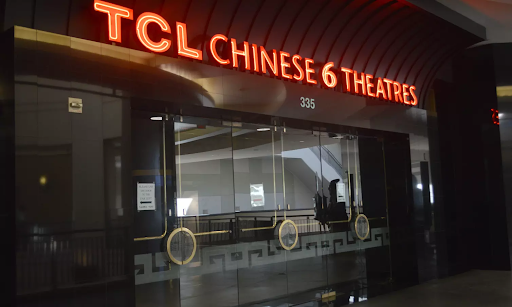
Ultimately, it is a contest of consumption. Whoever can pile up the most screenings is the one with the most social capital that comes with early awards season opinions to share. On that note, from Wednesday to Friday, I attended eight screenings. THE STRANGER, FATHER MOTHER SISTER BROTHER, REBUILDING, TWO PROSECUTORS, KONTINENTAL ‘25, JAY KELLY, THE PLAGUE, and my personal most anticipated of the fest, IS THIS THING ON?. I would only describe JAY KELLY and IS THIS THING ON? as “easy to watch.” We’re dealing with a lineup largely of slow, esoteric European fare that is often depressing. KONTINENTAL ‘25, the “comedy” of that subsect of my lineup, deals with an eviction agent who has a mental breakdown after her displacement of an unhoused man causes him to kill himself. I suppose her 15 different variants of the “I feel guilty about this, should I?” conversation with the various sociopaths in her life was supposed to be the funny part? One of the worst movies I’ve ever seen. English-language films are easier to process when exhausted, but the stories are no less heavy. REBUILDING deals with a Colorado community recovering from wildfire devastation. FATHER MOTHER SISTER BROTHER chronicles three fraught family dynamics injected with a bit of bone-dry Jim Jarmusch humor. THE PLAGUE is a thriller about adolescent bullying, in which a group of boys on a water polo team ostracize their autistic member by pretending he has a deadly virus.
It takes a very specific type of brain to not only absorb all of the trauma that cinema has to offer but also articulate your experience in a primarily analytical way, preferably right away.
When you’re covering a festival, falling behind on your writing is the equivalent of slipping off the treadmill and breaking your neck. If you allow the exhaustion or sadness to set in for too long, you’ll want to leave the building and never return, because only more emotional whiplash awaits inside those walls. For this festival, I started taking notes during movies for the first time in my career. This wasn’t just to stay alert as hour upon hour of cinema floated by, but to document emotional reactions as they washed over me so that I could remember them and maintain my output. My brain was swiftly forming thoughts and then putting them on the back burner to make room for more. The only way I’d be able to articulately express said thoughts without freezing was if they were recorded right there in the moment. My festival experiences before this were wildly different. I only saw eight films during my 2017 Sundance Film Festival outing—I had some review deadlines, but they were pretty easy to fit in between drinks. Meanwhile, Beyond Fest is a one-screening-per-day affair if you have a full-time job. Since the ticketing system is a free-for-all, there are sometimes multiple days between screenings. AFI was a brand new beast, my first taste of the true hustle of entertainment press work. I loved it.
As we plugged away at our coverage of THE VOICE OF HIND RAJAB while waiting for BAD APPLES, Carson and I could only laugh at the borderline psychotic cognitive dissonance we were participating in. After I wrote my short reaction (“reviewing” a testimony of a child’s death feels pretty clinical, even for me), I opened my “2025 Ranked List” to find a temporary home for it. Carson watched as I moved it through the 20s, passing THE ROSES, K-POP DEMON HUNTERS, CAUGHT STEALING, and LURKER. I hesitated before placing it above LURKER, because my personal philosophy for ranking is this strange algebra between enjoyment and importance that is impossible to articulate. “Let’s not start slowing down at LURKER,” he remarked, equally appalled that I ultimately placed the docu-drama two slots below the Channing Tatum true crime comedy ROOFMAN. I attempted to explain that ROOFMAN is going to figure into my rotating canon of movies that I come back to year over year. He unrelentingly roasted me before the lights went down. Fair enough.
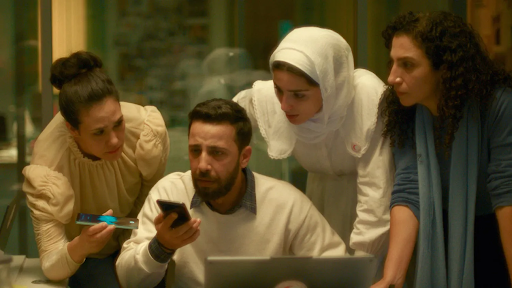
I’m not blameless in this predicament. The truth is, out of the options presented to me, I chose to immediately book it to BAD APPLES. I could’ve sat for that Q&A and made it to New Zealand’s gothic horror film MARAMA, Iran’s esoteric-sounding DIVINE COMEDY, or even America’s horror comedy FUCKTOYS if I wanted something a little simpler and spicier. BAD APPLES appealed to me most: an actress I adore, a delicious concept that I could definitely follow even in delirium, and 96 minutes long. In this battle of function and pleasure versus taste and reverence, I put my primal urges first. The really scary part? I was just fine. I sat there and ate up every second of BAD APPLES, utterly delighted in its depravity, callousness, and unhinged lead performance. The weight of my previous experience lifted, likely because I didn’t take the time to hear the people who toiled at bringing its impossibly difficult subject to life tell their story. I was still moved, haunted, and disgusted by it, just not derailed.
I’m not complaining. In fact, during this transcendent experience I realized that I need to do everything I can to turn film criticism into a career. I truly believe that what we do is very important (albeit deeply weird). We’re living in a horrific age. Every day, American people toil and suffer under the thumb of our horrific current regime while people young and old are brutally killed in pointless wars across the ocean. Naturally, people crave comfort in entertainment. It could be the latest installment in their favorite IP franchise, a cozy sitcom, or a 6,000-episode anime: whatever can break the spell of despair for the longest. When they try to branch out and are disappointed, that creates a bitterness not just towards that specific project but the very artform of film and its creators. “How could these Hollywood assholes make me watch this? They’re so out of touch.” A critic’s job is to help people choose the challenges that work best for them. If we help people know what they’re in for, they will be prepared to enrich themselves in ways that feel feasible for them. As they read or watch our work, a trust grows, and they’ll take chances on films that feel even less comfortable because we recommend it. Allowing this playful, slightly parasocial dynamic to endure with the temptation of validating A.I. marketed as a friend is essential to maintaining connection with one another. If we’re going to get through the Hell we’re living in, we need to help each other find the experiences that will be most meaningful.
When BAD APPLES ended and we were finally walking to the car after finishing an eight-hour stretch of movie-watching, Carson and I were once again discussing ranking. I also placed BAD APPLES above THE VOICE OF HIND RAJAB but below ROOFMAN. We wondered aloud if I was a bad person for preferring a glib child abduction satire over a document of real-life violence against children that will doubtlessly be shown and studied for decades to come. I said my piece, which is that while Kaouther Ben Hania’s work was beautifully executed, it ultimately serves as proof of atrocities that a certain sect of people still remain bafflingly skeptical about. Having used my eyes and ears since October 2023, it certainly impacted me, but it’s a film I’d rather recommend than rewatch. “Valid,” Carson said, not so secretly thinking that it wasn’t that valid an opinion. Nevertheless, he accepted my strain of critic craziness, and we drove off to get some sleep before doing it all again the next day to see TRAIN DREAMS, a treacherous tale of 20th century America told through the eyes of a logger, THE CHRONOLOGY OF WATER, a relentlessly furious montage of torment adapting the memoir of a swimmer who was physically and sexually abused by her father, and THE TESTAMENT OF ANN LEE, a musical about a religious cult led by a woman who lost four babies post-birth. The first two are masterpieces.


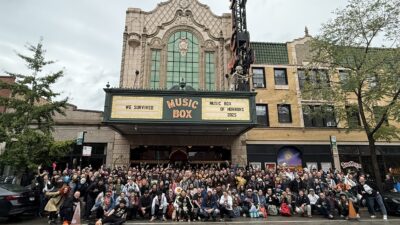

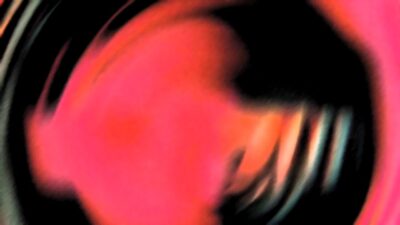




Comments